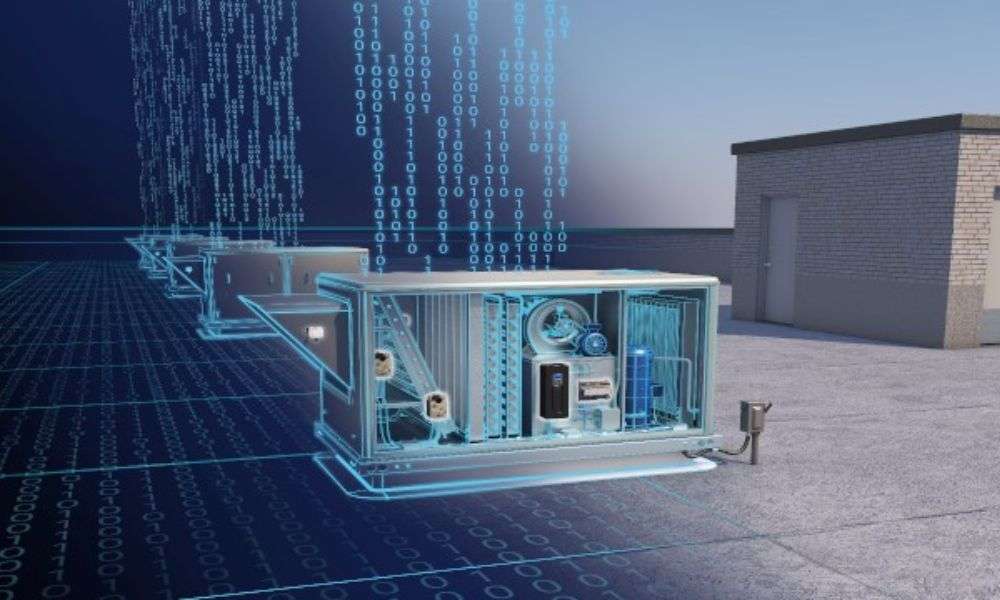In today’s fast-paced technological world, AI solutions for HVAC service companies have become a game-changer. These solutions are not only enhancing efficiency but are also shaping the way HVAC companies operate. By integrating artificial intelligence, service companies can optimize their processes, improve customer satisfaction, and reduce operational costs.

The Role of AI in HVAC
The integration of AI in HVAC systems allows companies to harness the power of data and predictive analytics. This transformation is pivotal for companies aiming to stay ahead in a competitive market. With AI, companies can anticipate system failures and address issues before they become significant problems, thereby reducing downtime and improving client trust.
Predictive Maintenance: A Game Changer
One of the most significant advantages of AI in HVAC is predictive maintenance. By analyzing patterns and historical data, AI can predict potential failures in HVAC systems, allowing technicians to perform maintenance before a breakdown occurs. This proactive approach not only saves time but also reduces costs associated with emergency repairs.
Enhancing Indoor Air Quality
AI-powered systems are also instrumental in monitoring indoor air quality. They can adjust HVAC settings in real-time to ensure optimal air quality. For more insights, explore AI for indoor air quality monitoring.
Benefits of AI for HVAC Companies
Cost Efficiency and Energy Savings
AI technology helps in optimizing energy consumption by adjusting HVAC operations based on usage patterns and environmental conditions. This leads to significant energy savings and cost efficiency. Companies can thus offer competitive pricing to their clients while maintaining profitability.
Improved Customer Experience
With AI, HVAC companies can provide personalized services to their clients. By leveraging data, companies can offer customized solutions that meet the specific needs of their clients, enhancing customer satisfaction and loyalty.
Challenges in Implementing AI
While the benefits are immense, the integration of AI in HVAC systems also comes with challenges. Companies must invest in the necessary technology and train their staff to handle AI-driven systems. This transition requires time and resources, which might be a barrier for some companies.
Overcoming Technological Barriers
To successfully implement AI, HVAC companies need to overcome certain technological barriers. This includes upgrading existing infrastructure and ensuring seamless integration with AI technologies. Partnering with tech firms for HVAC technician tools using AI can facilitate this transition.
The Future of AI in HVAC
As technology continues to advance, the role of AI in HVAC will only grow more significant. Companies that embrace AI solutions will be well-positioned to lead the industry, offering innovative and efficient services to their clients.
AI and Sustainability
AI also plays a crucial role in promoting environmental sustainability. By optimizing energy use and reducing waste, AI contributes to creating more sustainable HVAC solutions. This aligns with the global shift towards greener and more environmentally friendly practices.
For a deeper understanding of how AI is reshaping the HVAC industry, consider reading this external resource.
The Competitive Edge
AI provides HVAC companies with a competitive edge by offering advanced features that traditional systems cannot match. From real-time data analysis to predictive capabilities, AI ensures companies remain at the forefront of innovation.
Conclusion
The adoption of AI solutions for HVAC service companies is not just a trend but a necessity for future growth and success. By embracing these technologies, companies can improve their operational efficiency, reduce costs, and provide superior service to their clients. As the industry evolves, AI will be a pivotal factor in determining which companies thrive and which fall behind.

FAQs
What are AI solutions for HVAC systems?
AI solutions for HVAC systems involve using artificial intelligence to optimize and enhance HVAC operations, including predictive maintenance and energy efficiency.
How does AI improve HVAC service efficiency?
AI improves HVAC service efficiency by providing predictive analytics, which helps in foreseeing potential system failures and optimizing energy usage.
What challenges do companies face when integrating AI in HVAC?
Companies may face challenges such as the cost of technology, the need for employee training, and the integration of AI with existing systems.
This article contains affiliate links. We may earn a commission at no extra cost to you.
